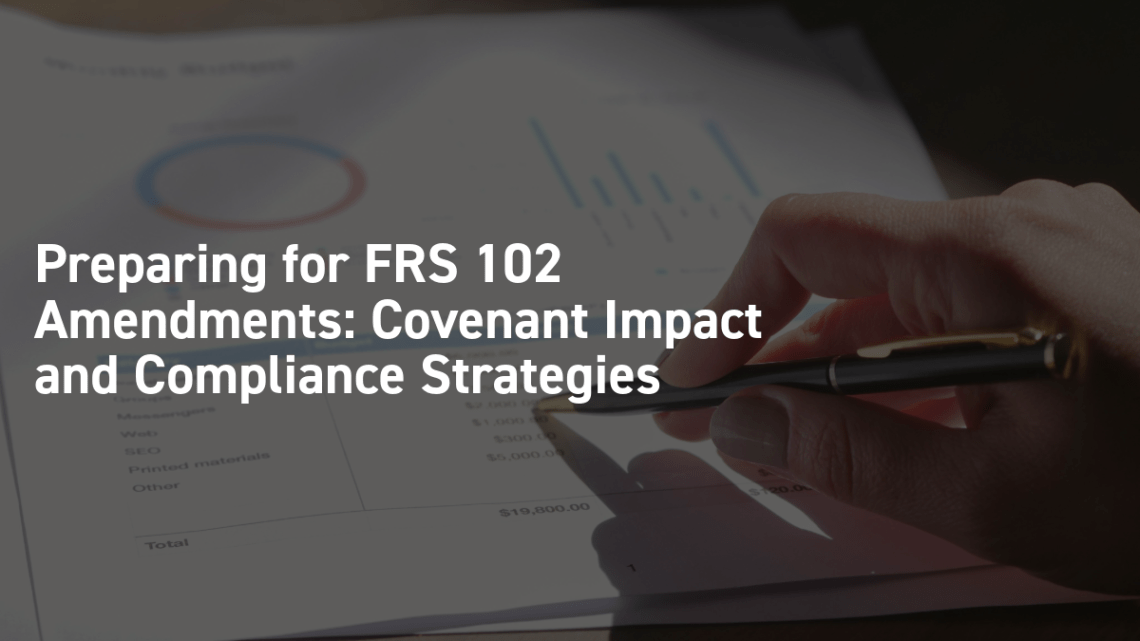
The Financial Reporting Council’s (FRC) 2024 amendments to FRS 102, effective for accounting periods beginning on or after 1 January 2026, are set to significantly reshape financial reporting for UK entities. These changes, aligning FRS 102 more closely with international standards (IFRS 15 and IFRS 16), particularly affect revenue recognition and lease accounting. A lot of discussion has been had into these changes and how to report under the new amendments but less has been said about the potential implications to organisations and why it is important to plan ahead.
The upcoming amendments to FRS 102 are poised to have far-reaching implications for UK businesses, especially those reliant on debt financing and we will be publishing a series of articles to help guide you through those changes. In this article, we cover the fact companies may face challenges in maintaining compliance with existing loan covenants, wider implications and how to prepare for them.
Two key areas—revenue recognition and lease accounting—are at the heart of these changes.
Impact on Loan Covenants:
These accounting shifts may distort key financial metrics such as EBITDA, net debt, and interest cover – metrics often embedded in loan agreements. For instance, EBITDA may rise due to lease expenses being split into depreciation and interest, while net debt increases due to lease liabilities.
This could lead to inadvertent covenant breaches, even if the underlying business performance remains unchanged.
Wider implications:
Beyond the potential immediate impact on financing, the potential shifts in both the profit and loss statement and balance sheet could impact other stakeholders such as employees, shareholders and investors.
For those with long-term contracts where the new five-step model is most likely to impact, management need to think about short-term changes to distributable reserves that could affect dividend payouts and bonuses. Internal KPIs may no longer be as relevant or reflective of the business and further consideration maybe needed to ensure they are fit for purpose.
With amendments potentially affecting reported revenue, profits, EBITDA and the balance sheet this could also have an impact on the valuation of the business or future earn-outs. Thinking about SPAs that may be signed in the next 6-12 months is therefore critical to ensure value.
The operational challenge of collecting and analysing data to enable firms to assess and implement these changes may require system changes or upgrades, a change of controls or job descriptions, all of which could be time consuming and costly. Therefore, management will need to consider this, ensuring it is factored into forecasts and budgets where necessary and communicated to the relevant stakeholders.
What Companies Should Do:
Clearly the potential impact maybe greatest to those who have existing debt and covenants, so they need to ensure they do not breech any terms, but these considerations are also relevant to any organisations seeking new financing as well.
However, as highlighted, those affected must also consider broader issues, such as the costs of implementing adequate systems and controls to collect and review data, while businesses and owners contemplating a potential exit need to ensure that the terms account for the impact of any changes to the financials.
Our next article will explore more detailed insights into M&A and the impact the amendments could have on the valuation and other aspects.
As the implementation date approaches, businesses should act now to mitigate risks and maintain strong lender relationships.
How we can help
HW Fisher have a number of financial reporting specialists that can advise your organisation on transition through the new amendments or further advice. As a starting point, we are holding a series of webinars to guide you through the changes for companies and for charities and higher education institutions.
We’d love to hear from you. To book an appointment or to find out more about our services: